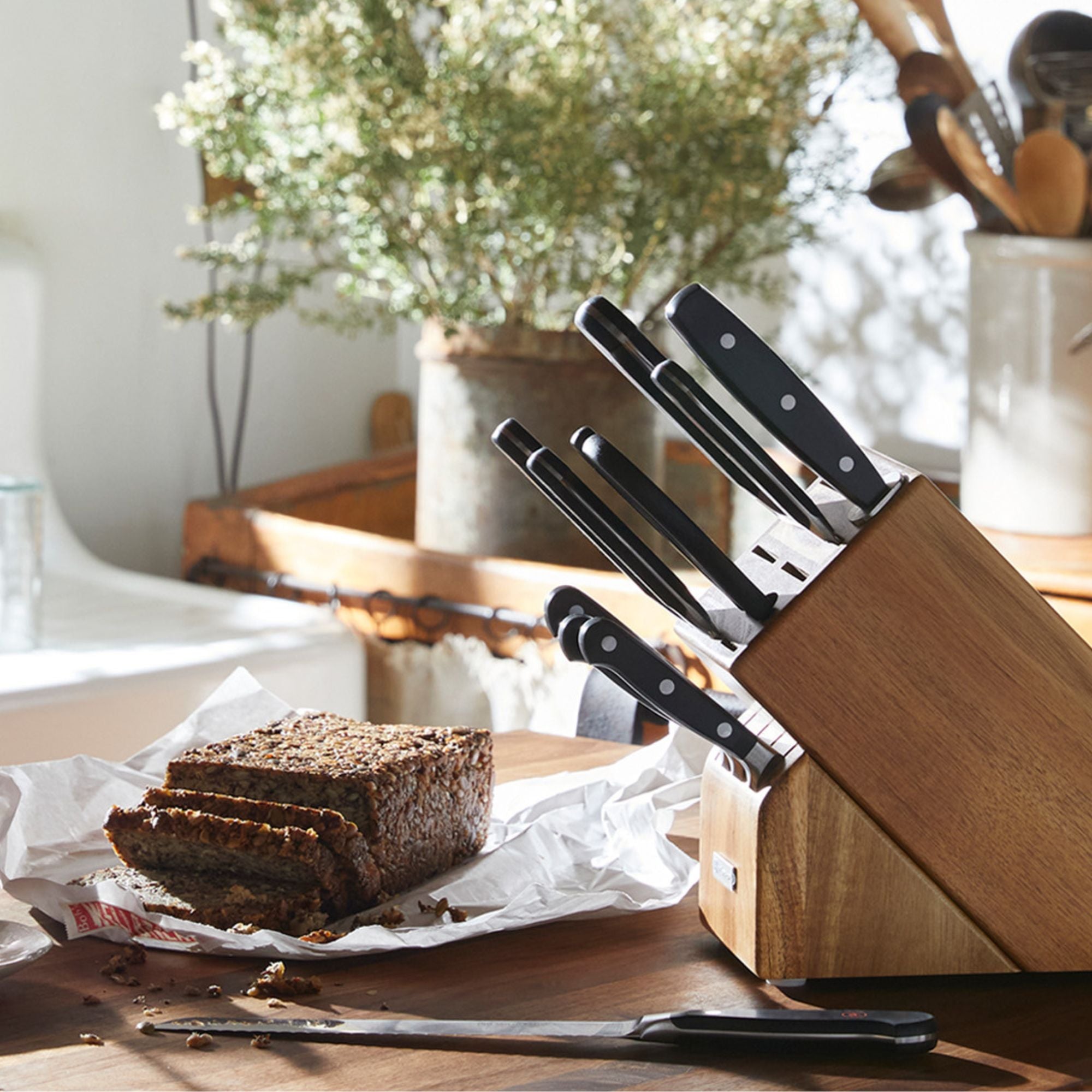It’s 1992 and WÜSTHOF has been quietly working on an innovation that will shape the future of knife production. By the time the year is up, the company will have developed and patented the “sacrificial anode,” a genius trick adapted from the ship-building industry that makes each WÜSTHOF knife virtually indestructible.
The Sacrificial Anode
An Iconic Element in WÜSTHOF Design
In ships, the sacrificial anode is fixed to the hull to prevent crucial metal structures from corrosion when submerged in seawater. Corrosion is a chemical reaction in iron and steel that results in oxidizing, rusting, and decomposing. In other words, it causes plenty of damage that effects the ultimate durability and longevity of the boat. Add a sacrificial anode and, thanks to corrosion prevention, the endurance of the machinery increases tenfold.
Everyday kitchen tasks involve water, heat, and hard surfaces, so why not protect our high-quality kitchen knives the same way? Say a cook accidentally drops their kitchen knife on the floor — by the way, make sure to always leave your knife on your cutting board to prevent this from happening — which causes small, hairline cracks inside the handle. As moisture, salt, and acid penetrate these cracks, the steel underneath the handle will eventually start to corrode. At some point, the knife will completely rust through, rendering it unusable even though the blade is still in perfect condition.

To remedy this, WÜSTHOF fixes a small aluminum ring to the tang — the extension of the blade through the handle — during a knife’s assembly. If any water hits the handle, the aluminum ring “sacrifices” itself to prevent wear and tear from weakening any part of the blade. Since the sacrificial anode is the first contact point between the elements, it is destroyed first. According to the periodic table, aluminum is less noble than stainless steel, meaning it’s more reactive. While the sacrificial anode very slowly dissolves over decades, the steel itself is spared from any damage. This means each WÜSTHOF blade holds the highest standards for knife performance and premium, long-lasting quality.
Since developing this revolutionary protective process in the 1990’s, WÜSTHOF has implemented the sacrificial anode across many knife series, including Crafter, Ikon, Classic Ikon, and of course our time-honored Classic series.
The Importance of Knife Care
While the Sacrificial Anode prevents wear and increases your knife’s longevity, it’s important to note that properly cleaning and caring for your knife is the best way to enhance your knife's lifespan, so you can use your well-loved blades for decades to come.
Our most important tip for caring for your WÜSTHOF knives – never put them in the dishwasher. Food remains and high temperatures can damage the blades and cause corrosion even with the Sacrificial Anode in place. We promise that handwashing and drying your blades is worth the extra effort! Simply wash your knives with warm water, mild dish soap, and a non-abrasive sponge. Then, dry them with a clean kitchen towel and tuck them away in your knife block, in-drawer knife organizer, magnetic bar, or knife roll. Adopting the right habits of basic knife maintenance ensures your knife’s sharpness, quality, and performance remain consistent.

Whether you’re prepping ingredients for the week ahead or whipping up delicious dishes for others, it makes sense that perfect knives will be the ones you reach for the most. Key factors of such excellence, in WÜSTHOF’s opinion, include consistent durability and performance despite years of repeated use. With the best knives, function is just as important as form, and the sacrificial anode ensures that the blades our knifemakers work so hard to craft remain an integral tool in your kitchen for years to come.
Related Posts

Legacy
A Look Inside the Cutlery Center of the World

Knife Knowledge




